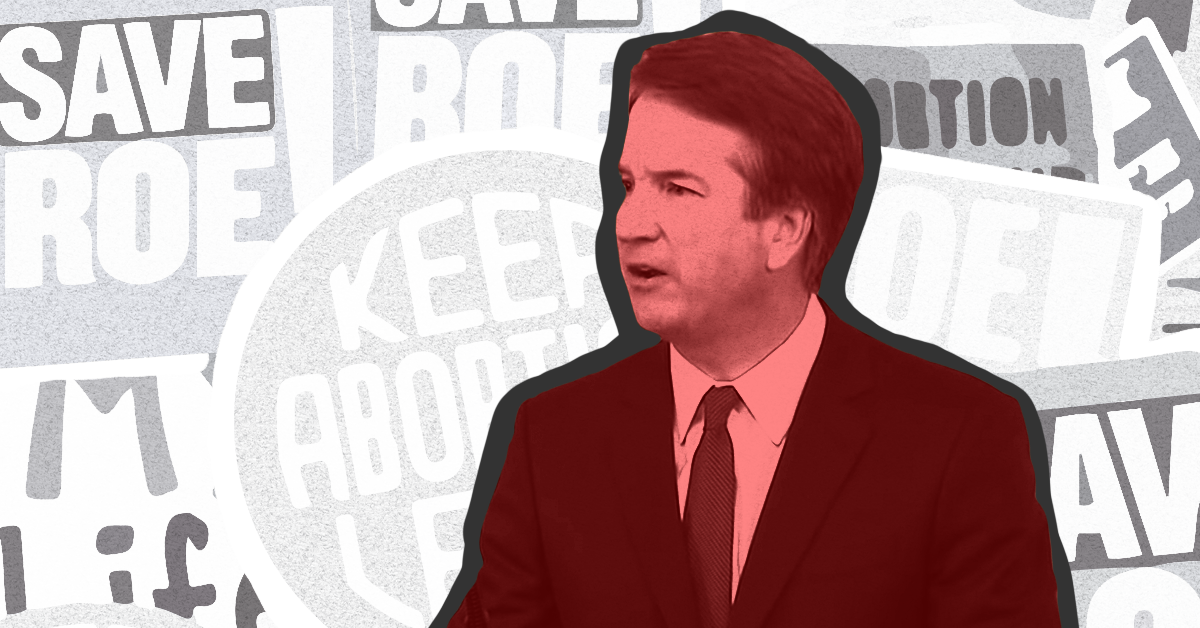On Sep. 5, Sen. Dianne Feinstein began probing Supreme Court nominee Brett Kavanaugh’s position on Roe v. Wade by providing shocking statistics.
“In the last two decades before Roe,” Feinstein said, “deaths from illegal abortions in this country ran between 200,000 and 1.2 million,” per The Weekly Standard.
The problem? The statistics were off by hundreds of thousands. However, despite the misstep, the alarms have sounded that Kavanaugh’s appointment could mean the end of Roe v. Wade—ending reproductive rights as the United States has known them for almost 45 years.
It should come as no surprise that this debate is still shrouded in misinformation, misrepresentation and misuse of language. Despite the misconstruction of the debate, Christians must continue to push forward for the lives of the unborn by correctly reframing the issue.
MISINFORMATION
According to the Weekly Standard, “Feinstein was seemingly citing a 2003 report from the Guttmacher Institute, a research and policy organization that was originally founded within the structure of Planned Parenthood.”
The report lists 1930 as the most deadly year for illegal abortions, accounting for almost 2,700 deaths. By 1950 the death toll had declined to just over 300. In 1972, one year before Roe v. Wade, the number of deaths due to illegal abortion had fallen to 39. Though the correct numbers are no less saddening, Feinstein still significantly distorted the truth to provide more unnecessary fuel to an already heated Supreme Court hearing.
MISREPRESENTATION
Despite misleading statistics, this hearing has further allowed for misrepresentation of the debate. From Rep. Lois Frankel arguing that Kavanaugh’s appointment “will send us back to the coat hanger days” to Feinstein arguing that Roe v. Wade is about a woman’s right “to be able to control their own reproductive system and privacy rights,” the arguments have attempted to use scare tactics to obscure the true debate—the right of the unborn child.
These arguments stem from a misguided conception of the debate. If we assume that the unborn is not a child, then the fear of illegal abortions and reproductive and privacy rights comes into the picture. However, if the unborn child is in fact a child, then both counter-arguments appear unintelligible. How is it possible to defend the deaths of over 60 million unborn children, especially given the disproprotionately few deaths in the years leading up to Roe v. Wade? How is possible to defend the right to intentionally kill the unborn?
MISUSE OF OUR LANGUAGE
Some have argued that those deaths may be defended because saving these children would violate a woman’s right to make reproductive choices. However, this language is not only rigged against the anti-abortion position but also a blatant misuse of language to further distort the debate.
There are two reasons why the debate is not merely about a woman’s right to make reproductive choices. First, this phrasing assumes that the debate is about whether a woman has the right to control her own reproductive organs. However, the choice to have an abortion is not merely about her own reproductive system but involves the consequences of killing a child. In the same way, it would be unfair to argue that depriving a child of food is merely an agricultural policy that affects the farming community.
Second, the argument assumes a distorted view of biology by isolating the argument to only women’s rights. Conception does not merely involve a woman’s reproductive system, but also the man’s reproductive system. Just as children are not dropped off at the doorstep by a stork, children are also not brought into existence from a single person. Our language should not assume this is merely a woman’s rights debate, but a social debate about the most intimate society—the family.
WHERE DO WE GO FROM HERE?
Kavanaugh’s Supreme Court hearing has given occasion to again distort the importance of protecting the life of the unborn child. However, this occasion also provides us the hope of one day seeing Roe v. Wade be cast away as a moral failing in the same way that slavery once was. In the last decade, we have seen a shift from viewing an unborn child as merely a fetus back to viewing it as an unborn child. Perhaps we will once again behold children as the wonder they truly are—the outpouring of love by the most intimate society, the family.








